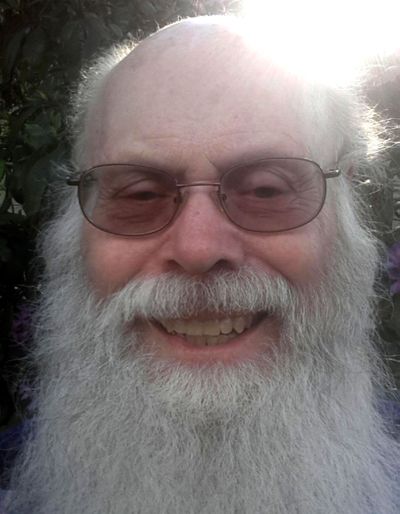Spin Control: For this perennial candidate, Tuesday’s primary ended like past runs

As is the case with most primaries, Tuesday’s election created far more losers than winners.
For some races, like the ones at the top of the ballot where the number of wannabe senators, congresspersons or governors was in the double digits, that was guaranteed.
For senatorial candidate Goodspaceguy – who has run for some office or another 25 times in the past 44 years and almost every year since 2004 – it was frustrating, but hardly surprising.
Yes his legal name is Goodspaceguy. He went to court to change it as a way to stand out from the more common name of his birth, Michael Nelson.
Spaceguy, as he suggests people call him to avoid stringing together three consecutive syllables with hard-sounding consonants, is running eighth out 11 candidates in the Senate primary. He’s slightly under 1% of the vote. If there’s any consolation, it’s that he has almost twice the votes of Thor Amundson, another perennial candidate, in 10th place.
He ran this year as a Republican, although in the past he’s listed his party affiliation or preference variously as a Democrat, Libertarian, independent or the Worker and Wealth Party, which was his own creation.
He ran, as always and as his name might lead one to guess, on a proposal to colonize space with orbiting stations. He also made a pitch for a free-market economy without government controls like minimum wage laws that he contends reduce profits and cost jobs.
Not that you would have seen anything about that program on a television ad, heard it on a radio commercial or read it in campaign literature that arrived in your mailbox. Spaceguy spends nothing on campaigning, other than the filing fee for the office. Because he was running for the U.S. Senate, that fee was the not insubstantial sum of $1,740. At 85, he said he has made good investments and spends less than he takes in every month so that wasn’t a hardship.
Like other perennial candidates, he’s not usually invited to debates or forums and is mostly ignored by the news media. If you knew anything about him this year, it’s probably because you were diligent about reading the Senate candidate statements in the state voters pamphlet. The order of the candidates was based on their spot on the ballot so Spaceguy’s statement was last.
He usually runs for a statewide office, like governor or U.S. Senate, because his ideas are distributed statewide in the voter’s pamphlet. In years without a statewide race, he’s run for the U.S. House of Representatives, the Legislature or King County Council.
“My message is in my statement,” he said. His entry also lists contact information, which generates calls and emails. But in the end, not many votes.
“This election was particularly depressing,” he said of getting less than 1% on a platform which he believes would increase the prosperity of workers and help save Earth.
But he conceded that while his name may alert voters to his programs, it could be a two-edged sword by suggesting to some he’s not a serious candidate. “They might just think ‘There goes a kook. He’s probably homeless.’ ”
His first race, for a Seattle-area state House seat in 1980, was arguably his most successful.
He made it through the primary with about two-thirds of the Republican vote. He then lost to the Democratic incumbent in the general election, who got three-fourths of the vote. Two years later he ran for the same seat as a Democrat, and finished last among four Democrats. To be fair, however, young lawyer and future governor Gary Locke blew all the competition out of the water for that open seat.
He didn’t run again until 2004, after he got re-energized by attending the 2002 National Libertarian Convention in Indianapolis.
“It can seem like a waste of time, a strong rejection, when more than 98% of the voters are voting for someone else,” he said late last week. “I’m really disappointed.”
Like most years, he’s frustrated after the votes are tallied. “But then next year comes around and I file again anyway.”